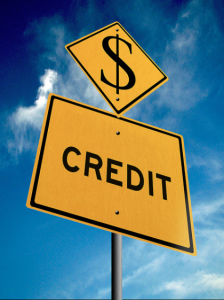Nearly a quarter of all American adults have discovered problems with their credit reports, according to a recent survey.
Some of the most common errors included incorrect credit history, identity theft or information mixed up with another person, and credit scores incorrectly reported as being too low — all critical mistakes that can torpedo an otherwise sterling mortgage application.
If you’re in the market for a home loan, it’s critical that you review your credit reports from the three major credit reporting agencies — Equifax, Experian, and TransUnion — and promptly correct any mistakes.
The good news, according to legal information site FindLaw, which sponsored the survey mentioned above, is that 68 percent of people who found a credit reporting error said the problem was corrected to their satisfaction.
But that still leaves nearly one-third of survey respondents unable to get the reporting agencies to promptly correct errors.
Experts agree that consumers need to be aggressive in tracking their credit reports and insist that errors be corrected to their satisfaction.
That means checking your credit reports regularly.
Federal law mandates that all Americans are entitled to a free credit report from each of the three major credit reporting agencies once every 12 months. Forget those ads that claim free credit reports but lock you into expensive contracts; the only website sanctioned by the U.S. government for truly free reports is AnnualCreditReport.com. (For more information, read an explanatory article from the Federal Trade Commission.)
Federal law also sets requirements for resolving disputes involving the accuracy of information in a person’s credit report.
If you’ve been denied credit, you have 60 days to insist that you be told why. FindLaw has a sample request letter that you can send to the company that denied you or to the reporting agency that gave you a low credit score.
Bay Area-based Nolo, one of the most trusted names in self-help legal publishing, has a no-nonsense article on its website, “How to Correct Errors on Your Credit Report.” Other useful articles on the site include “Common Errors in Credit Reports,” “Adding Explanatory Statements to Credit Reports,” and “Getting Credit Reports From Specialty Consumer Reporting Agencies.”
Another good source for credit-repair information is the U.S. Public Interest Research Group, which strongly recommends that you fix any credit-report errors yourself — without the help of a “credit repair doctor.”
However, before tackling reporting errors, it’s important to understand exactly what a credit report is and how it’s used. For that, check out a helpful guide from the U.S. Federal Reserve.
The final paragraph of the Fed guide offers what may be the single most useful nugget of information for consumers who, despite dogged efforts, are unable to resolve credit-report errors:
“If an investigation does not resolve your dispute, you can ask that a statement of the dispute be included in your future credit reports. You also can ask the credit bureau to provide your statement to anyone who received a copy of your report in the recent past, but you may have to pay a fee for this service.”
(Image courtesy of 401(K) 2013, via Flickr.)

